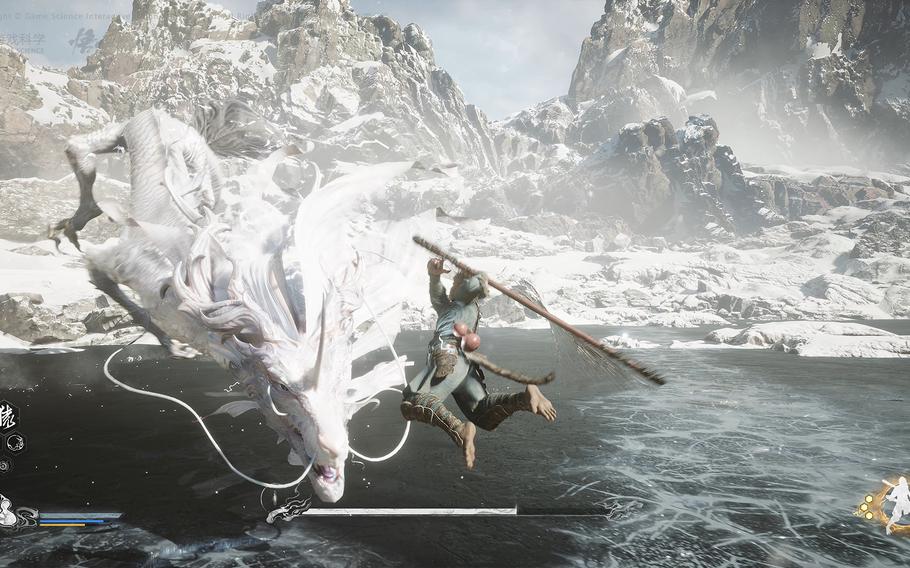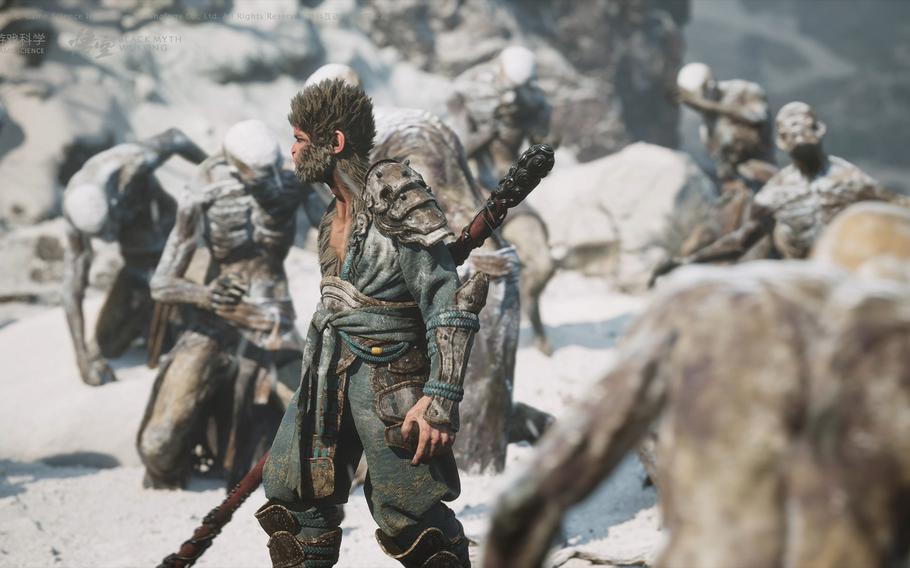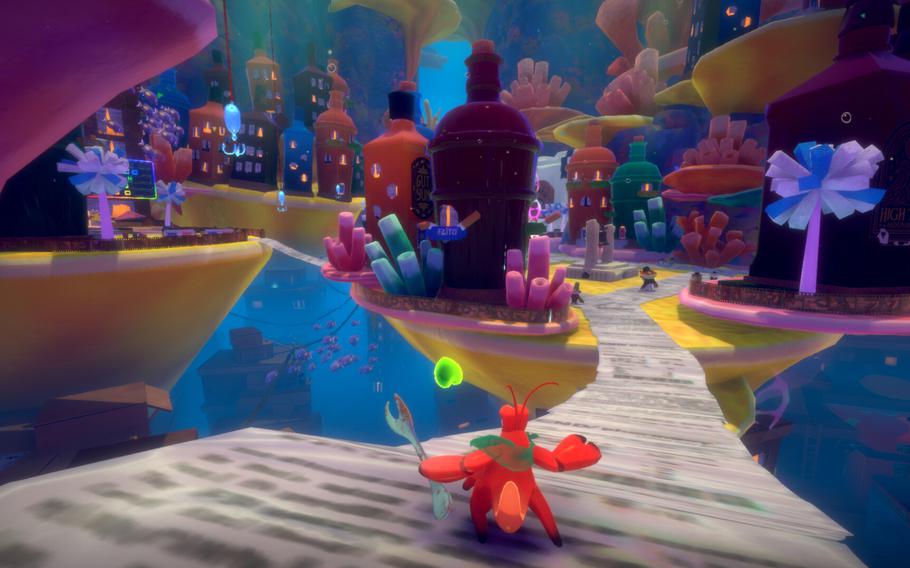
Staff stances give the combat of Black Myth: Wukong a unique bounce in its step. (Game Science)
Four years ago, a small studio in Hangzhou, China, dazzled the games industry with a stunning trailer for Black Myth: Wukong.
As that trailer promised, the game is filled with luscious battle animations and otherworldly beasts and biomes set against the tropes of the 16th-century Chinese epic novel “Journey to the West,” with combat encounters inspired by FromSoftware’s Dark Souls series. Black Myth: Wukong was released Aug. 20, two years after Elden Ring elevated the standard for this genre, and two months after that game’s stunning Shadow of the Erdtree chapter.
I need to preface that I’ve played only four hours of this game, and this is all based on first impressions. But after everything that’s happened since 2020, including so many other games of this type being released, it’s hard to find what makes Black Myth: Wukong unique and interesting. Even Stellar Blade, another debut game released this year from a small Asian studio with similar combat, set itself apart with its sexualized cyberpunk aesthetic.

The Destined One, a martial arts monkey hero, uses three different stances for staff attacks in Black Myth: Wukong, adding verticality and bounce to what could have been boring attack-and-dodge action. (Game Science)
Wukong gets the most important and hardest aspect right: The combat is fluid and has many interesting features not found in other games. The Destined One, the martial arts monkey hero inspired by the novel’s Sun Wukong, uses three different stances for staff attacks, adding verticality and bounce to what could’ve been boring attack-and-dodge action. A variety of spells are augmented by transformation abilities that let him turn into different defeated enemies. It’s not quite the wide array of possibilities offered in a role-playing game, but Wukong allows for a surprising amount of customization. It was a simple but inspired choice to make players craft armor instead of just finding it, lending a sense of ownership and agency to what we wear, and impressive cloth and fur physics sashay with the action.

Black Myth: Wukong has its own unique combat system, even if it feels inconsistent. (Game Science)
But the fights can be hit or miss. Veteran Souls players will understand: In certain games there are certain enemies that feel like they’re from other games. One of the end battles in Sekiro felt like an enemy from Bloodborne, and many claim the infamous Malenia battle in Elden Ring is lifted from the frenetic sword fights of Sekiro. It’s usually an odd one-time deal in these other games, but in Wukong, that feeling is a constant. In an effort to make every boss battle feel unique, too many of them can feel at odds with the speedy and light player action. Combat also feels weightless and often lacks a satisfying punch, with staff hits sailing through enemies as they barely flinch.
I’m still compelled to play more, especially since the skill list looks exciting to unlock despite a linear progression. Plus the game isn’t too tough, particularly since the only punishment for failure is a checkpoint respawn. But it’s hard to get too excited when so much of it feels familiar. The set design is stunning, but actually navigating these spaces isn’t particularly exciting, especially when it’s just more echoes of dead, cryptic fantasy worlds. For me, fatigue for this vibe already began as I finished Erdtree two months ago.
Am I just tired of this style of action?

Another Crab’s Treasure offers a lively, bright take on the Dark Souls formula. (Aggro Crab)
As a test, I decided to buy indie studio Aggro Crab’s latest game, Another Crab’s Treasure, a far more deliberate Dark Souls-like game with punishing deaths. It’s about a hermit crab forced to venture into the ocean to find his shell. Even after just two hours of playing, the crab game does things even FromSoftware games have never done.
Kril, our crab hero, discovers an ocean with an established caste system, a governing body with a market economy fueled by taxes, and even an underwater city with parks, shops and buildings. There are clever touches everywhere: Different nations, for example, repurpose discarded sauce packets as state flags. Despite its vast world and rich history, Elden Ring doesn’t come close to demonstrating a world full of vibrant life. Aggro Crab immediately reminded me what a game can look like with a coherent, consistent and distinct vision.
Wukong scratches an itch I’ve been clawing at for years. If it’s still a satisfying space for you, I’d read and watch other reviews before settling to scratch it with this monkey’s paw.
Platforms: PC, PlayStation 5, Xbox Series X/S
Online: heishenhua.com